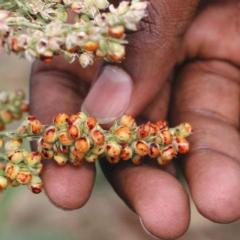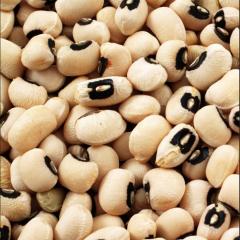Abstract
Induction of apomixis, or clonal reproduction through seed, could economise commercial hybrid seed production and enable smallholder farmers to save and sow hybrid seed. Here, we demonstrate the synthetic induction of apomixis in two sorghum hybrids and show that the clonal hybrid seed can be maintained across multiple seed generations. This was achieved through the combination of avoidance of meiosis and induced parthenogenesis. Meiotic avoidance was generated by CRISPR/Cas9 knockout of the sorghum meiosis genes Spo11, Rec8, OsdL1 and OsdL3. Parthenogenesis was induced in the resultant diploid egg cell by the expression of the Cenchrus ASGR-BBML2 gene coding sequence. Two different strategies were used to combine these components to induce synthetic apomixis in two sorghum hybrids. Each hybrid used Tx623 as a female parent and either Tx430 or the African landrace Macia as a male parent. Seed yields in both apomictic hybrids were consistent and stable for multiple generations following self-pollination but reduced relative to the sexual hybrids. Sorghum contains two copies of the Osd1 gene that function in meiotic non-reduction. CRISPR/Cas9 knockout of both OsdL1 and OsdL3 loci was sufficient to produce clonal hybrid progeny in conjunction with the other components, but this led to a reduction in seed set. By contrast, a single in-frame edited allele of either OsdL1 or OsdL3 significantly improved seed set of clonal hybrid progeny. Fine-tuning OsdL activity appears to be essential to optimising fertility; however, additional improvements are required to unlock the agronomic potential of synthetically induced apomictic sorghum in the field.
Simon, M.K. et al. Induction of synthetic apomixis in two sorghum hybrids enables seed yield and genotype preservation over multiple generations. Plant Biotechnology Journal 1-13 (2025). https://doi.org/10.1111/pbi.70441



